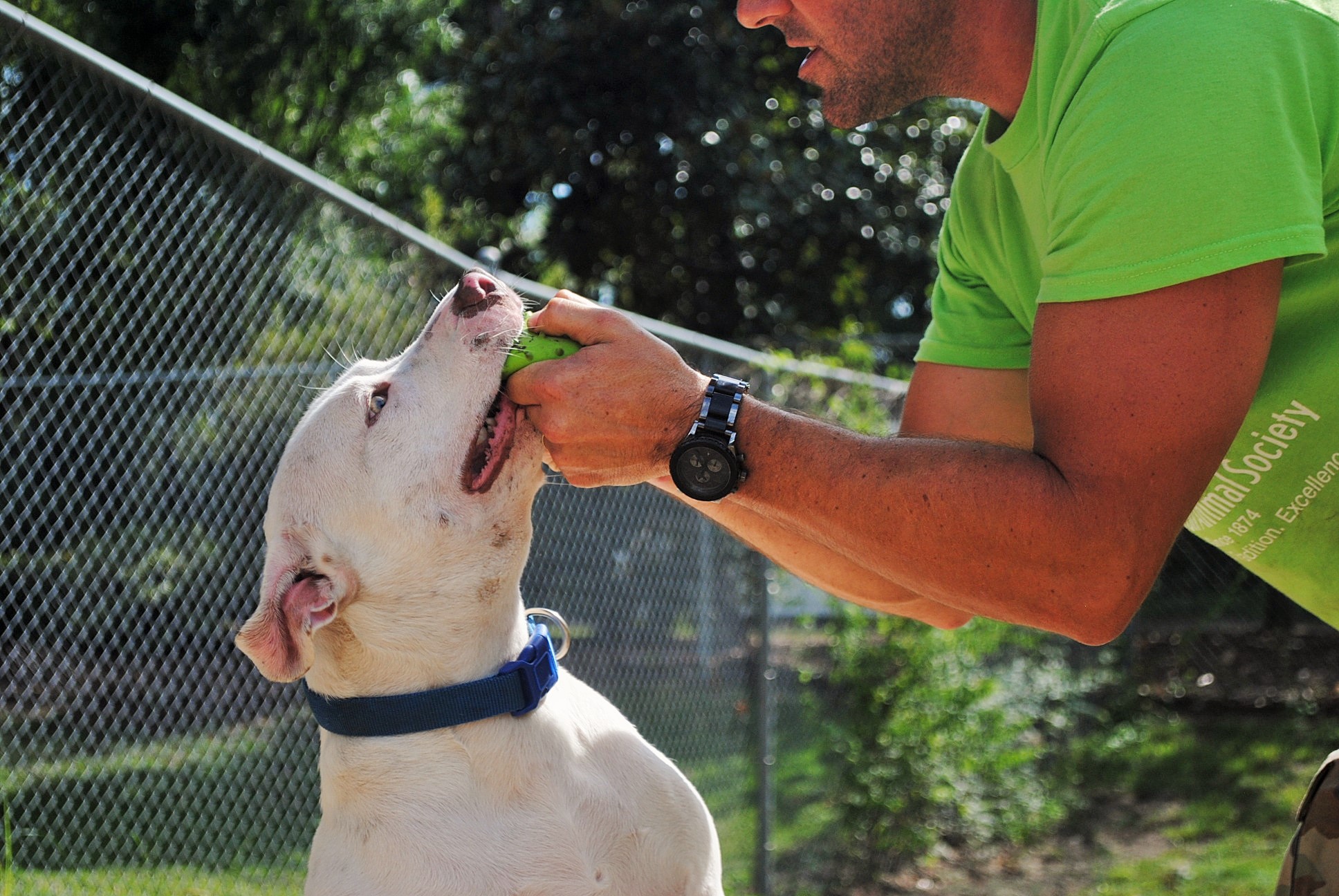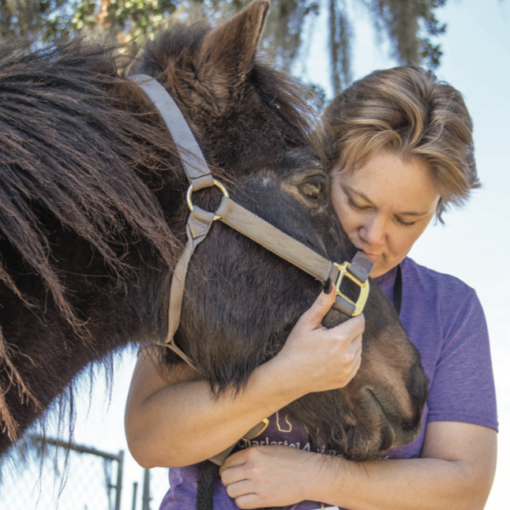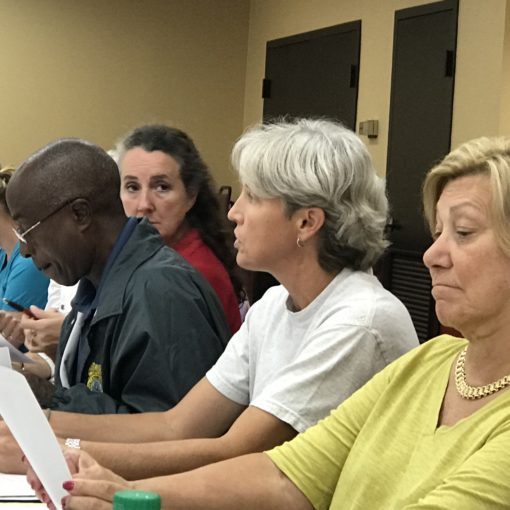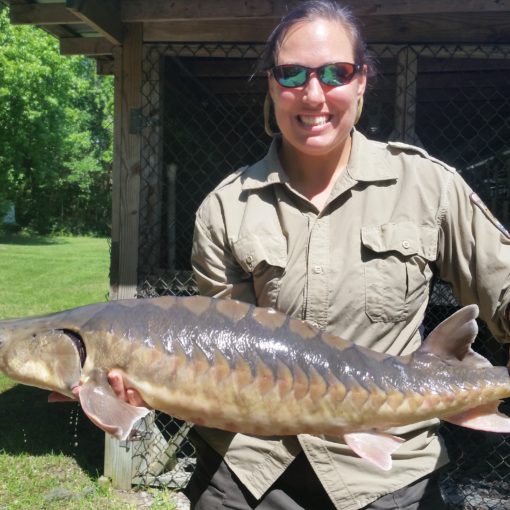By V.K. Hansen
The enticing scurry of squirrels in the trees falls silent. That squeaky chew toy in her mouth just goes flat. But Lola, a nearly 3-year-old pit mix, doesn’t know any different. The gorgeous white, light greened-eyed dog with a brown speckled nose is deaf.
“Most likely, Lola does not know she is deaf,” said Donya Satriale, head of the Behavior Department at Charleston Animal Society. “She simply enjoys life to its fullest. She plays, lives and loves like any dog, and maybe with more enthusiasm.”
In December 2015, Lola was discovered abandoned. Finding a forever home has been a struggle ever since. “Each home had its obstacles,” said Satriale. Lola’s been adopted unsuccessfully five times. One owner’s dog wasn’t fond of a new friend. Another’s roommate had allergies. Two more, shelter workers say, had unrealistic expectations or could not manage a dog that is deaf.
Then, there was the trucker, the perfect fit. “She loves car rides and would be your partner in crime on a road trip,” Satriale said of Lola. Sadly, the trucker’s company issued a “no dogs allowed” rule. “Heartbroken and disappointed, he returned her.”
“We really thought that was going to be her forever home,” said shelter worker Conor Thompson.
Lola stares at the floor as people pass her pen. The clicking of tongues and “Hey, buddy!” calls only wag the tails beside her. But like a child no one plays with, Lola seems to amuse herself.
Her sign reads, “All adoption fees waived.” Her name appears simple, in print. But, much like her situation, it’s not. Lola means “sorrows” in Spanish and “moving to and fro” in Sanskrit. Yet in modern English, it’s defined as “strong woman.”
“She’s grown up to be a strong, independent dog,” said Satriale. “And despite her many human related commitment failings, she still loves like she hasn’t been hurt.”
This is most evident by the way Lola lights up at the sight of shelter worker Thompson. “She just needs to be shown the right way because she can’t hear yelling, screaming, barking or yelping,” Thompson says. He takes her out, and does what shelter trainer Caitlin Kuczko recommends: He listens and patiently speaks to Lola, through body language.
“I can get her to sit with hand signals,” said Thompson. “And she will fetch and play ball and jump in the baby pool.”
Unlike humans, dead dogs don’t need to learn American Sign Language, Kuczko notes. “A hand signal for your dog can be whatever you want.” And Thompson and Lola obviously have a language all their own.
“Communicating with deaf dogs is not a battle,” said Kuczko. “It’s not for everyone, but it can be extremely rewarding.” So rewarding that Thompson says he’s willing to work with the family who takes Lola home. “I think it will be good for Lola and the family she ends up with, but selfishly I admit that I want to be able to stay in Lola’s life.”
As Lola dives for the pool, submerged and cool, her nickname “Lola-gator” makes sense. “She’s like an alligator sitting in her swamp pool, watching the world,” said Satriale. Yes, she’s watching and waiting, for just the right family to find her.





